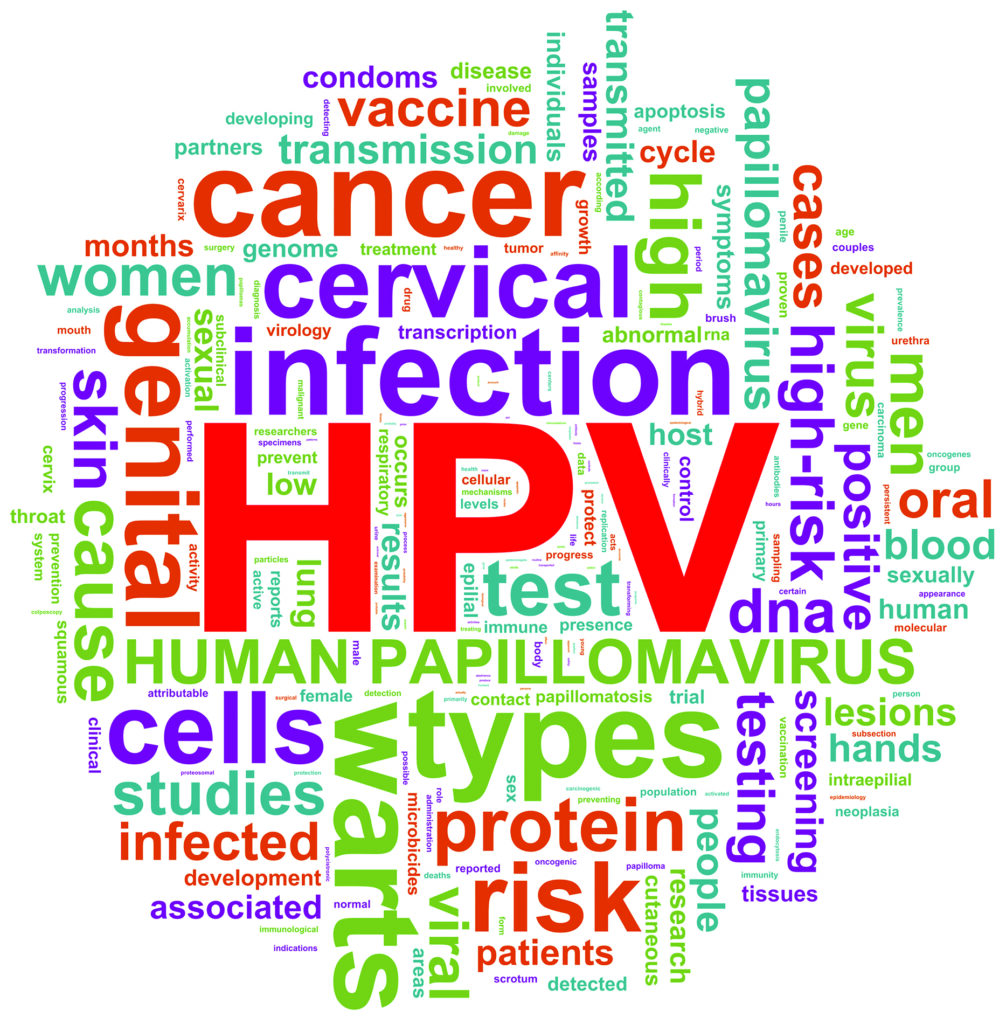Vaccinations are important shots that people need to get to protect against serious diseases. You may have heard reports on the news recently about the Human Papillomavirus (HPV) vaccine. With all the buzz, it can be hard to sort fact from the fiction. Test your knowledge by taking our quiz and learn how to ensure your loved ones are protected.
1.)What does HPV vaccine protect against?
- A virus that can result in six types of cancer
- A bacterial infection centered in the spine
- A virus spread like the cold virus
- The virus responsible for whooping cough
2.)Which of the following is caused by various forms of HPV?
- Genital warts
- Cervical and anal cancers
- Oropharyngeal (throat) cancers
- Penile, vulvar, and vaginal cancers
- All of the above
3.)True or False? The HPV vaccine stimulates the body to produce antibodies that, in future encounters with HPV, bind to the virus and prevent it from infecting cells.
4.)According to the Centers for Disease Control and Prevention, which age group should get the HPV vaccine?
- All children ages 11 or 12 years should get two HPV vaccine shots 6 to 12 months apart
- Young women through age 26, and young men through age 21
- Adolescents who get their first dose at age 15 or older and need three doses of vaccine given over 6 months
- D. All of the above
5.)True or False? The HPV vaccine can infect you with HPV
6.)How effective is the vaccine in preventing infection with the target HPV strains?
A. About 60%
B. About 75%
C. About 89%
D. Nearly 100%
7.)What does the HPV vaccine NOT do? (Choose all that apply)
A. Protect against other sexually transmitted diseases (STDs)
B. Reduce the risk of developing HPV-caused cervical cancer
C. Cure already existing HPV infections
D. None of the above
8.)True or False? Women who have been vaccinated with the HPV vaccine no longer need to be screened for cervical cancer.
9.)Which of the following prove the HPV vaccine is as safe as any other vaccine?
A. The vaccine went through extensive safety testing
B. The vaccine has been on the market since 2006
C. Worldwide, the vaccine has been given to more than 270 million individuals, with 100 million doses given in the U.S.
D. All of the above
10.)True or False? The HPV vaccine has harmful ingredients
Resources: Cancer.org and Cancer.gov
ANSWERS
- A. A virus that can result in six types of cancer. Some other strains of HPV cause genital warts.
- E. All of the Above. HPV strains can cause a variety of cancers, such as cervical, anal, throat, penile, vulvar, and vaginal cancers.
- True. Like all vaccines, the HPV vaccine puts the body on “high alert” for the virus, so the body can recognize and fight the virus and stop an infection in the future.
- D. All of the Above. The CDC recommends the HPV vaccine for all children ages 11 or 12 years old, women through age 26, and young men through age 21. Three doses of the vaccine are given over six months for those 15 and older.
- False. The viruses used in the vaccine are actually viruslike particles (VLPs) that contain no DNA, so they cannot replicate and infect the body.
- D. Nearly 100%. The HPV vaccine is nearly 100% effective at protecting against the targeted HPV strains.
- A. and B. The HPV vaccine does not protect against other STDs or cure already existing HPV infections; the vaccine does lower the chances of developing cervical cancer.
- False. Women still need to get timely cervical cancer screenings even if they have had the HPV vaccine because cervical cancer can develop through other means.
- D. All of the Above. The HPV vaccine is as safe as any other vaccine. It has been tested extensively and given to millions of people in the past 13 years.
- False. There is a lot of misinformation about immunizations out there, such as the aluminum in vaccines like the HPV vaccine is dangerous. In truth, we come in contact with more aluminum on a daily basis in our food and water than is in the HPV vaccine.
